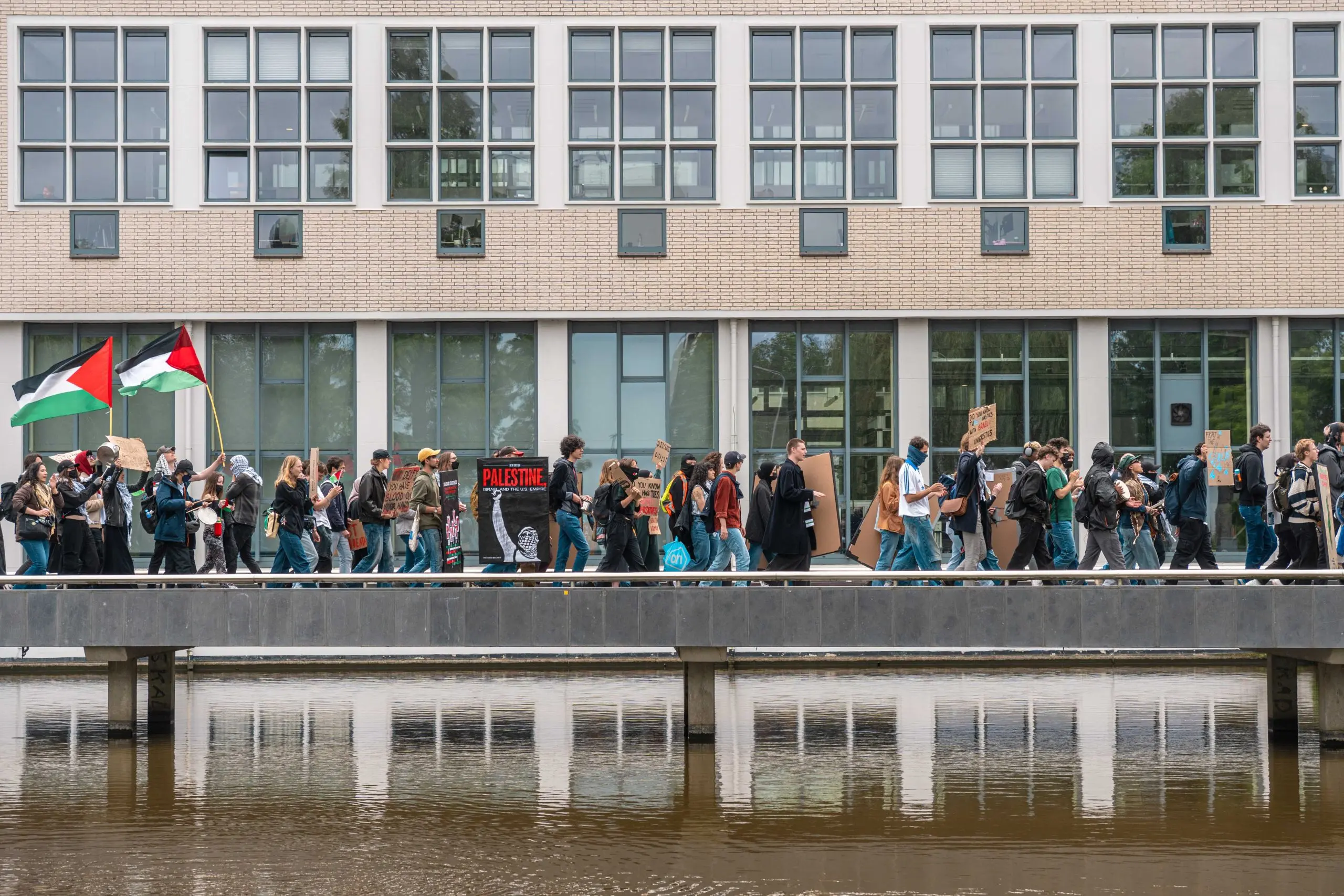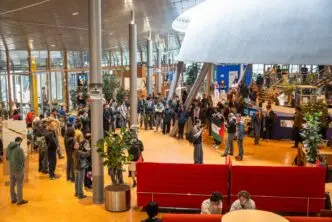Dutch universities are collaborating with Israel on 28 projects funded by the European Union that could have a military application, according to an investigation by Follow the Money. Brussels is reviewing whether such collaborations should be allowed to continue.
Noise march on campus in June 2024. (Photo: Thijs van Reeuwijk)
The European Union encourages scientists and researchers to engage in international collaborations, including beyond Europe. In this context, scientists from Dutch universities are also partnering with Israeli institutions and companies, financed through the Horizon Europe research and innovation programme. While this is not military research per se, the outcomes may have potential military applications.
Research platform Follow the Money reports involvement in 28 dual-use projects at a minimum, including at least one Dutch university and an Israeli company or research institution. These projects receive 356 million euros in EU subsidies in total.
European Commission figures show that Israel paid between 300 million and 390 million euros a year for participation in the research programme in recent years.
Examples
Eindhoven University of Technology (TU Eindhoven) is reported to be engaged in eight dual-use projects with Israeli partners, and Delft University of Technology (TU Delft) in seven.
In Follow the Money’s own research note, however, TU Delft appears with nine dual-use projects:
- Ensure6G on securing 6G networks with the Holon Institute of Technology (start: 1 January 2025, EU contribution: nearly €1.36 million).
- Cynergy 4 MIE with TU Eindhoven and the company Drive Utech LTD (start: 1 September 2024, EU contribution: nearly €10.3 million).
- QLSI2 on quantum computing with TNO and QM Technologies (start: 1 June 2024, EU contribution: nearly 25 million euros).
- BURST to develop more efficient solar cells with the company Holo-or LTD (start: 1 May 2024, EU contribution: nearly €3.2 million).
- SAFIR-Ready with the company Flyvercity LTD on improving drone use in medical and non-medical purposes such as train track inspections (start: 1 June 2023, EU contribution: nearly €6.5 million).
- 14AMI on semiconductors with the companies Applied Materials Israel LTD, Nova LTD, Bruker Technologies LTD and Kla-Tencor Corporation Israel (start: 1 May 2023, EU contribution: €25 million).
- OpenSuperQPlus on quantum computing with TNO and the Hebrew University of Jerusalem (start: 1 March 2023, EU contribution: nearly €20 million).
- HERWING on hybrid flying with aircraft manufacturer Israel Aerospace Industries (start: 1 January 2023, EU contribution: nearly €22 million).
- HERA to design and evaluate a regional hybrid-electric aircraft with TNO and aircraft manufacturer Israel Aerospace Industries (start: 1 January 2023, EU contribution: nearly €35 million).
Critics are urging universities to end these collaborations with Israel to avoid any perceived or other association with the war in Gaza. The Volt parliamentary group in the House of Representatives has already submitted written questions in light of the article.
TU Delft says there is no way to check whether research leads to military applications
Responding to the report by Follow the Money, Dutch universities stress that the distinction between civilian and military research is complicated. TU Delft, for example, says there is no way for it to check whether research leads to military applications.
Moreover, it is very difficult for universities to end collaboration projects with Israel. Universities face losing hundreds of thousands of euros in subsidies as well as the threat of legal action.
Research association agreement
Israel is relatively successful in obtaining grants. According to Follow the Money, it has received more than 3 billion euros in total in research funding over the past twenty years.
It is uncertain whether this will continue. Two weeks ago, the European Commission, acting on a Dutch initiative, agreed to review its cooperation with Israel, which could spell the end of the association agreement with the country. This would amount to almost a “death sentence” for Israeli science, the president of the country’s Academy of Sciences and Humanities has said.
Rector Peter-Paul Verbeek of the University of Amsterdam is going to check whether other rectors want to participate in a letter to the European Commission asking not to renew the Association Agreement with Israel. He has promised this to protesting students, reports Science Guide.
HOP, Olmo Linthorst/Delta, Annebelle de Bruijn
Translation: Taalcentrum-VU
Do you have a question or comment about this article?
redactie@hogeronderwijspersbureau.nl



Comments are closed.